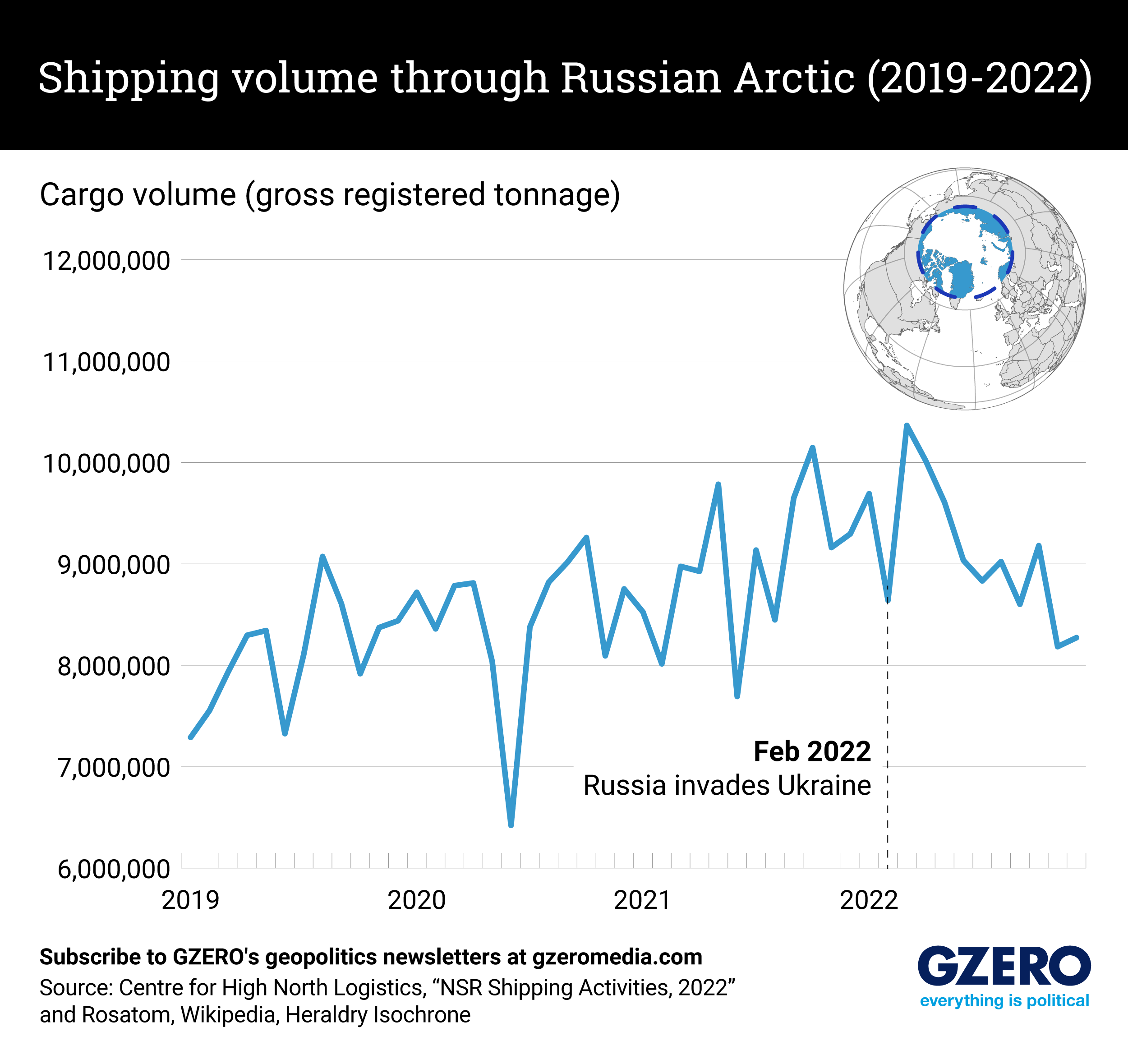The Graphic Truth: Shipping volume through the Russian Arctic
Climate change has opened Arctic shipping channels that can be navigated by freighters without icebreakers for several months a year – and year-round with icebreakers. Canada and Russia dominate the region, but Moscow is much more aggressively exploiting the economic opportunities there.
Taking the high-latitude route over Russia can shave 5,600 miles off a voyage from Europe to China, and as sea ice melt accelerates, the economic viability grows. Total shipping volumes along the Arctic route rose steadily between 2019 and 2020, and immediately after Russia invaded Ukraine, despite the frigid March conditions, the Arctic corridor saw its highest-ever volume of shipping in 2022.
Canada and the United States, meanwhile, have faced criticism for underinvestment in Arctic security. Canada, for example, lacks sufficient early warning systems to detect missile attacks coming over the North Pole — which is dangerous, given that the Arctic is essentially split between Russia and NATO countries.
We look at trade passing through the Russian Arctic corridor above.
